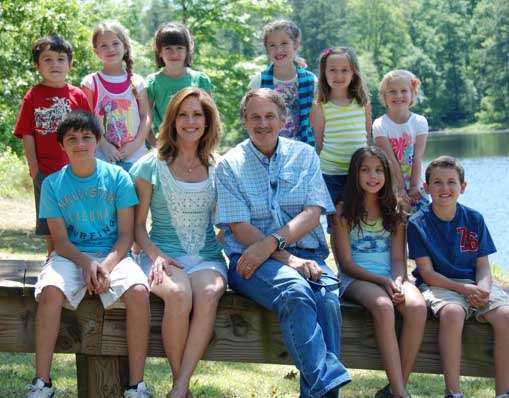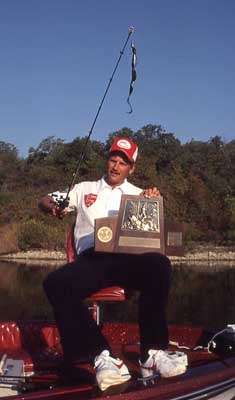
Hank Parker was the first angler to win a Bassmaster Classic and the Toyota Tundra Bassmaster Angler of the Year award. He was a power fisherman extraodinaire before “power fishing” was a term in the sport. In 14 years as a pro angler, Parker qualified for 14 Classics and won two of them. Then he hung it up at the age of 37, choosing to focus on family and his popular television programs. Now his attention is on our 20 Questions.
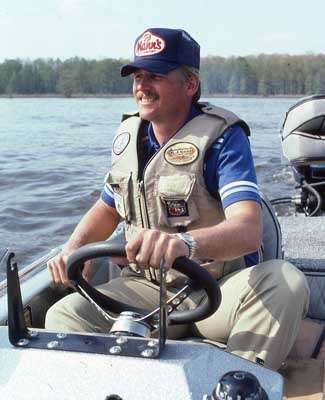
I was born and raised in Maiden, N.C.
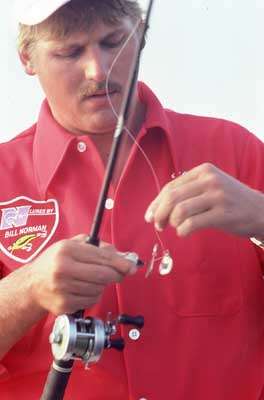
When I was a kid, my dad and uncles were always telling wild stories about their fishing exploits. When they’d take us fishing, all the other kids were worn out after about an hour, but I’d fish all day long. I was fascinated by bass. When I was about 15 years old, my aunt bought me a B.A.S.S. membership, and I started getting Bassmaster Magazine.
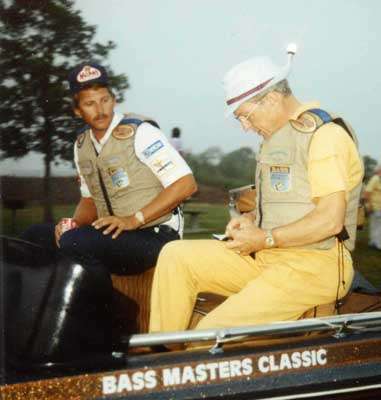
I was about four years old, fishing with my grandfather on the Ocmulgee River in Georgia â not far from where George Perry caught the world record largemouth â and my first fish was a redbreast.
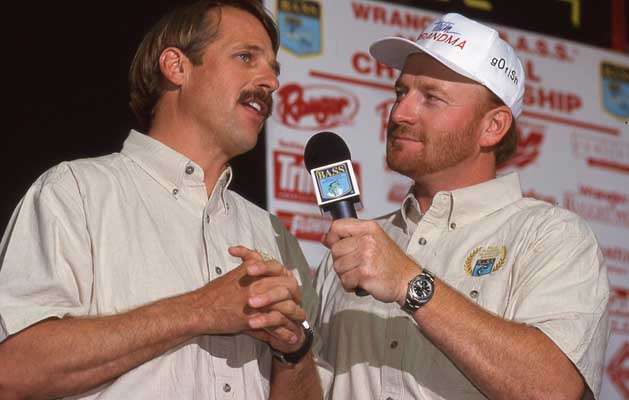
The first bass I remember isn’t one that I caught. I was about eight years old and my brother had taken a Hawaiian Wiggler out of my father’s tackle box. We went out to some pond we didn’t have permission to fish, and he cast it out into the middle and caught a bass that weighed about four pounds. I thought it was a giant. That fish did more to get me excited than any bass I ever caught.
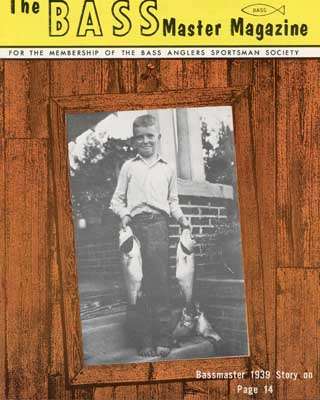
Blake Honeycutt from Hickory, N.C., was my first fishing hero. He lived not far from where I grew up, and I’d see him at weigh-ins on Lake Wylie. I wanted to be just like him and have a Ranger boat and wear a blue jumpsuit. (Above: The cover of the Spring 1969 issue of Bassmaster Magazine shows a young Blake Honeycutt with a couple of lunkers from 1939.)
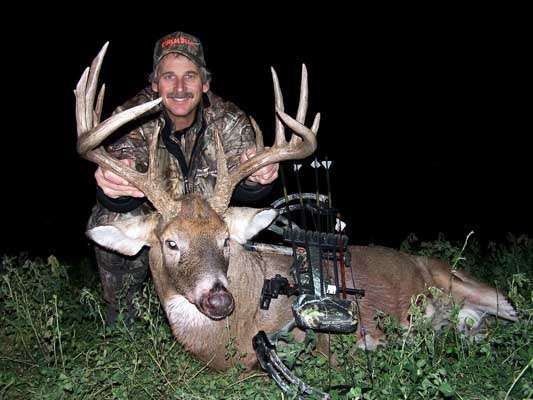
I’ve caught some bigger ones that I never weighed, but I actually put a scale on a 13-3 I caught out of a canal below Disney World. Earlier that same day I shot what was then the seventh largest Osceola turkey on record. It was a great day.
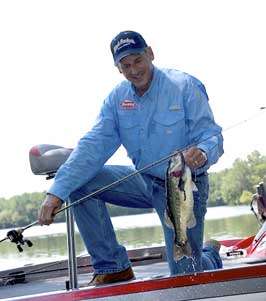
I love that you can come into the sport at any level and stay at that level, or you can move up or down in terms of what you spend, where and how you fish. I’ve been fortunate enough to fish all over the world for all kinds of different fish, and I’m just as fascinated with bass fishing today as I ever was. The bass is still my fish of choice, and I’ve always been satisfied to be a bass fisherman. I love every species I’ve ever fished for, but the bass will always be my favorite.
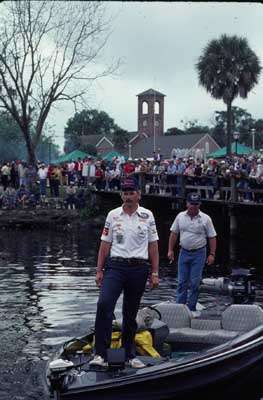
It would have to be Lake Champlain. It has incredible largemouth fishing and fabulous smallmouth fishing. The lake is wide open and pristine. I love bass fishing everywhere, though.
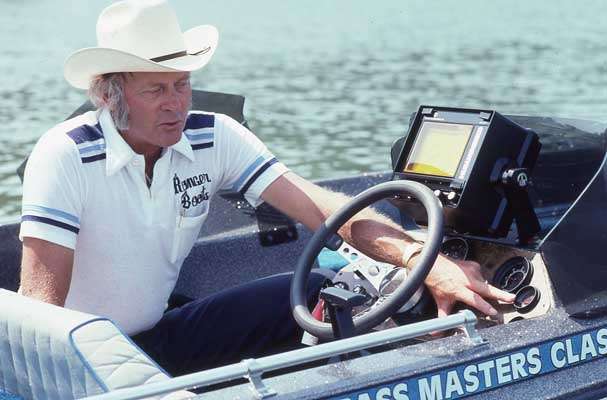
I’d have to say it’s been Forrest Wood (pictured above). When I needed help early in my career, he sponsored me and gave me great advice. I admire him so much that I started to think about things in my life and career differently. When I had a decision to make, I’d ask myself, “What would Forrest do? How would he handle it?” It helped me to make better decisions.
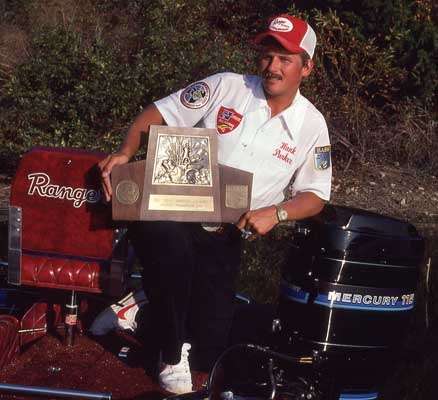
Sometimes I feel like I still have a long way to go, but it’s been very rewarding to have been voted into several halls of fame and for my peers â people I really respect in the fishing industry â to tell me that I’ve made a difference in the sport or that they recognize my fishing ability. That’s meant a lot to me.
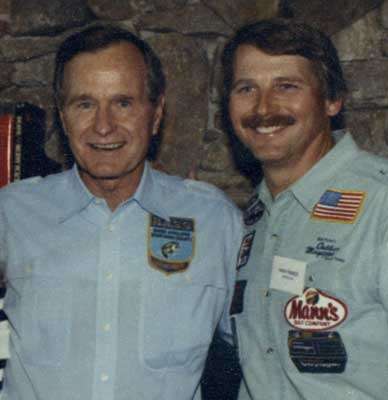
My goal now is to share the sport with as many people as I can. Fishing makes people smile. It’s an incredible sport. You don’t have to be seven feet tall or weigh 300 pounds to be a good fisherman. Anyone can do it. There are some pros who had little or no natural ability who have become some of the greatest anglers in the world. I want to show others how great the sport is and how much they can enjoy it.
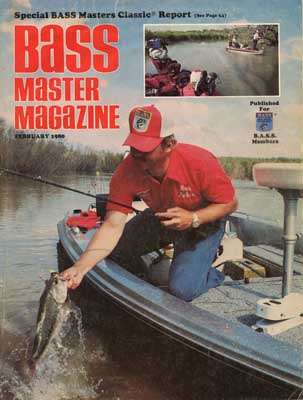
A lot of people think I’m always laid back, but I’m actually a very intense guy. During my first three seasons with B.A.S.S. (1978-80), whoever was lined up first at the dock got to take off first during competition. You weren’t allowed to just tie your boat off, either â you had to be in it the whole time. So, for those years, I made sure I was on the water by 3:30 a.m. every day, and I was first in line every day but one.
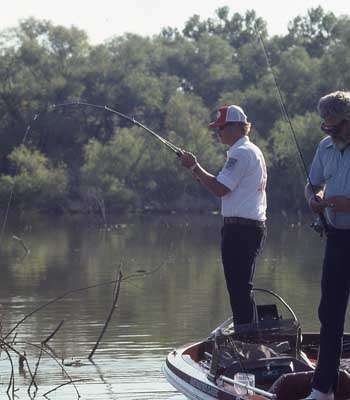
I wish I had been calmer, cooler and less aggressive on the water. When I felt like an angler was encroaching on my area, I reacted badly sometimes and said some harsh things that I regret. I wish I had avoided the personal conflicts that sometimes happened. When you think about it, I never actually beat Rick Clunn or Larry Nixon or any other angler. My competition was with the bass.
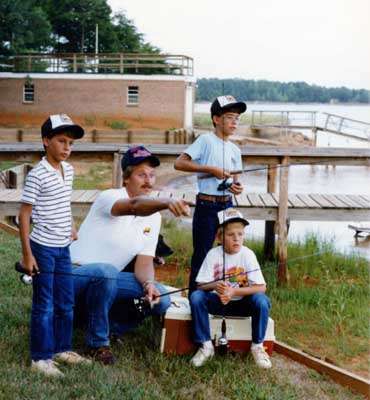
No, I didn’t. I had accomplished everything I needed to accomplish in tournament fishing. A lot of people don’t realize it, but professional fishing is a 365-day-per-year job. You’re constantly preparing for your next tournament, constantly working on new techniques. It never ends. I had four sons and a daughter who needed their dad to be home more, and today we’re as tight as any family I know. I wouldn’t trade that relationship for every bass that swims.
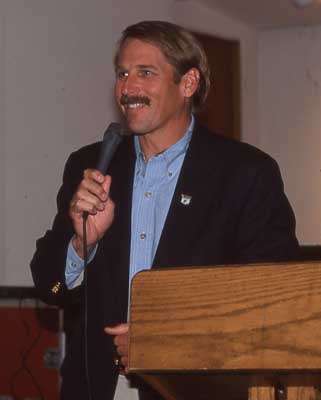
Forrest Wood once told me that we can’t be everything to everybody, but we can be faithful to the cause and to our word. That’s stuck with me a long time now, and I try to follow that advice in everything I do.
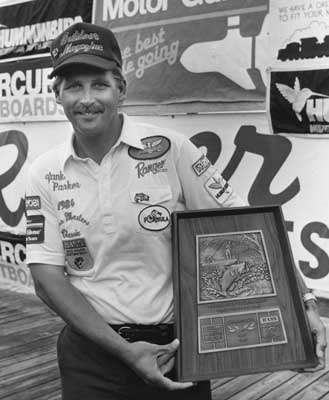
I’d say it was my versatility. A lot of people think I just threw a spinnerbait all the time, but if I needed to skip a four-inch worm under a boat dock on 6-pound-test or flip and pitch a jig to heavy cover, I could do that, too. I was always ready to do whatever it took to be competitive.
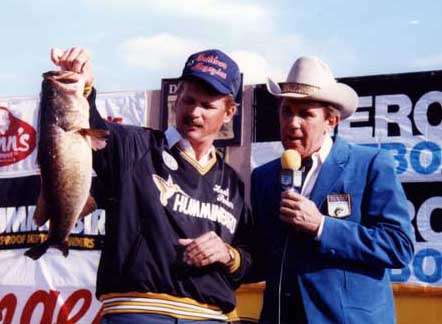
Not being able to block out the other anglers who were fishing in the same area. I’d see someone else moving in to fish a log I wanted to fish, and it would distract me â take my mind off my own fishing. That sort of thing would drive me nuts. It’s one of the reasons I would frequently drive a long way from takeoff to find my fishing areas â so there would be fewer distractions.
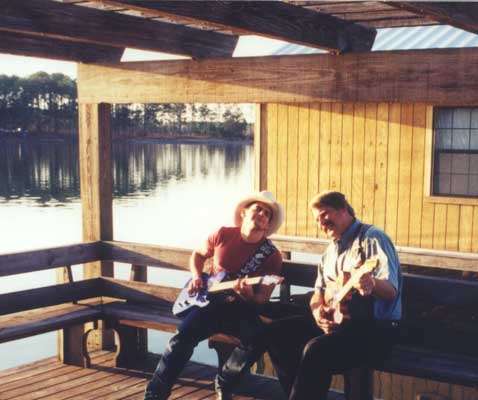
They all ask me, “When can we hook up and go fishing?” I’d really love to, but I’m so busy I just don’t have the time. That’s a shame, too, because I’ve learned something from everyone I ever fished with.
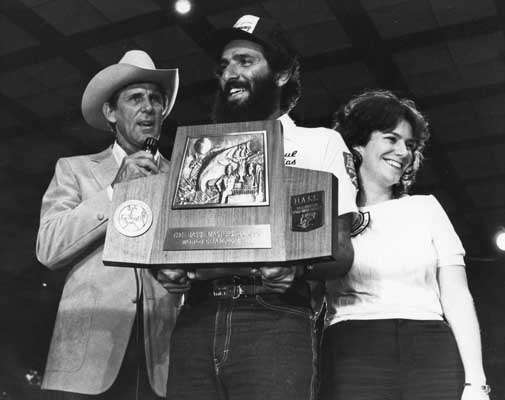
Not at all, but one of my friends, Paul Elias, is incredibly superstitious. The number 13 freaks him out. On the night before the final day of the 1982 Bassmaster Classic, Paul was in second place, and I wrote the number 13 under the bill of his fishing cap. He went out the next day and won the tournament. I showed him what I had done after it was all over, and he told me if he had lost he would have hunted me down and killed me. (Laughs)
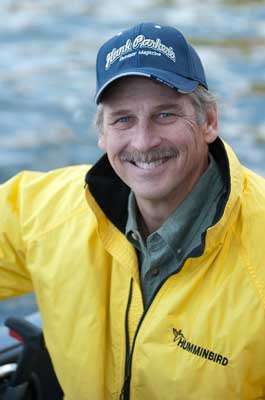
I want people to know that the gospel of Jesus Christ is the most important thing in my life. I also hope they know I sincerely cared and tried to make a positive difference in the sport. As I’ve aged, I’ve realized more and more how important that is, and I’ve tried to give back to the sport.
